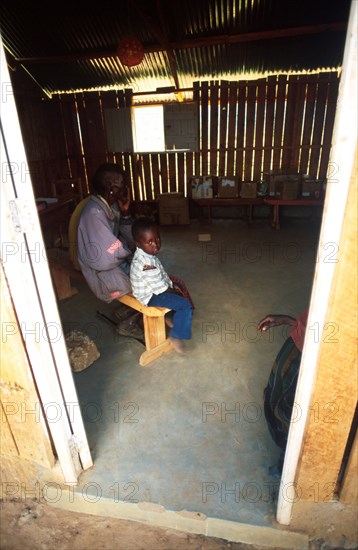
Sujet
A Samburu child waits with his father or grandfather for medical attention at a mobile clinic set up in a school in the town of Wamba. Samburu men later on in life take young brides in their teens
Légende
The Samburu people, a traditionally nomadic tribe in northern Kenya, like their cousins, the Maasai, have been slow to adopt global culture, clinging to their ancient ways. Two recent crises, however, have been eroding their traditional way of life. A three year drought, which began in 1998 decimated their livestock, cattle and goats, leaving them destitute. Livestock is the sign of their wealth and their means of survival. Secondly, their traditional culture which paves the way for sexual experimentation among the young, polygamy, wife sharing, and child brides, has made them especially vulnerable to HIV/AIDS which is claiming the lives of many young and old. Some measure of help has come from Edfri International based in Meru, several hundred kilometres to the South of Samburu. Part of Newfrontiers, a church planting movement which originated in the UK, Edfri International has been involved in providing famine relief, mobile clinics, a water scheme to provide a reliable water supply, and restocking of livestock. Edfri International has seven indigenous churches run by Samburu serving the communities scattered around the town of Wamba
Crédit
Photo12/Africa Media Online
Notre référence
APN09A05_135
Utilisation
uniquement en France, Belgique, Suisse
Model release
Non
Licence
Droits gérés
Format disponible
25,2Mo (888,8Ko) / 20,3cm x 31,1cm / 2394 x 3672 (300dpi)